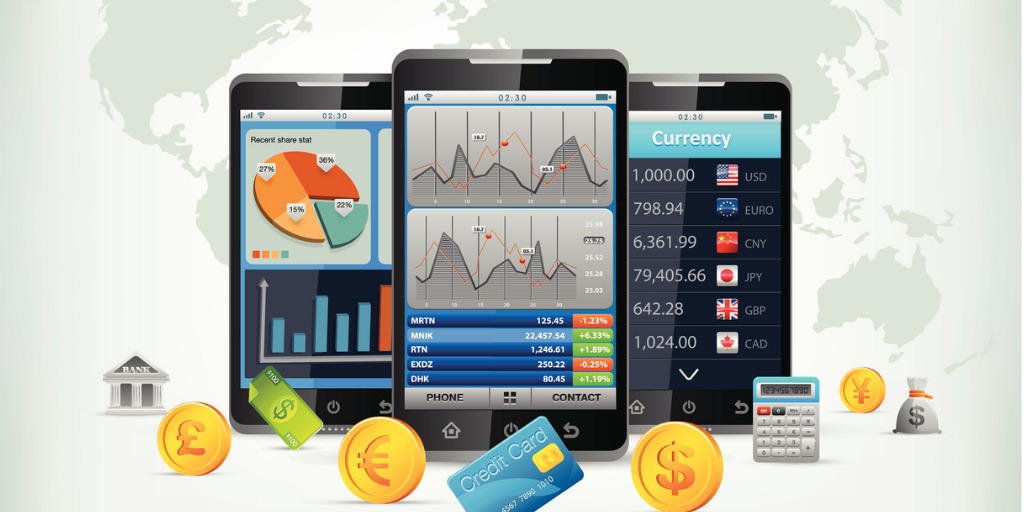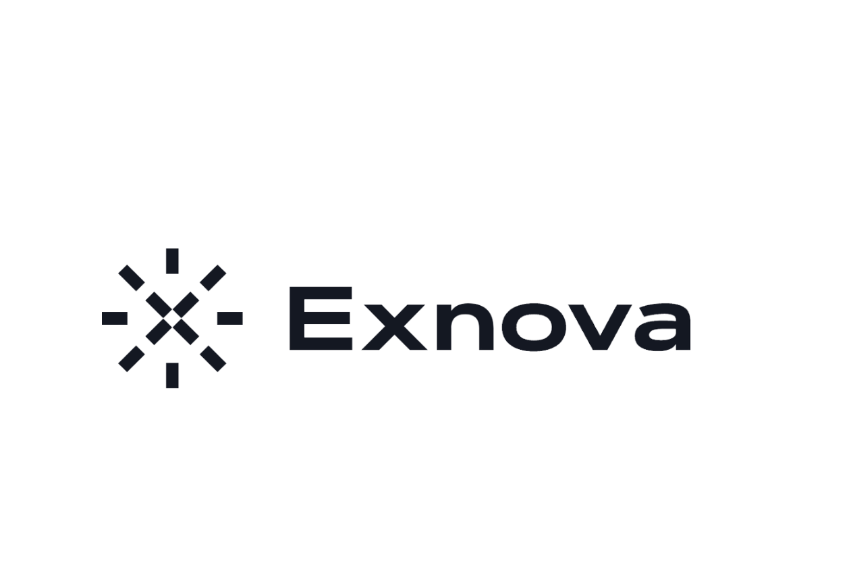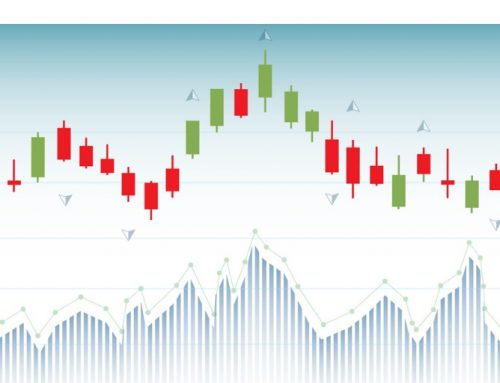How to Compare Forex Brokers and Find the Best One for You? In our forex broker review list, we have considered a number of ranking factors, from fees and spreads to trading platforms, charting and analysis options.
The “best” forex broker will often be a matter of personal preference for forex traders. Depending on the pair you need to trade, the platform, currency trading using the spot market or per point or ease of use requirements.
Here is a list of comparison factors. Some are more important to you than others, but they are all worth considering. More details on all these elements for each brand can be found in our individual reviews.
How to find the best forex broker
Here are the main criteria for finding the best forex broker in South Korea 2020. We will expand on each area later in this article.
- Trading Terms/Fees – This is the most important part of our rating of Forex brokers worldwide. There is no way around it. One forex broker can charge 10x less for the same trade than another. Log “hidden” fees such as withdrawal fees or inactivity fees.
- Market Coverage – Must be able to trade FX pairs or preferred/preferred instruments of your choice.
- Accessibility and Affordability – Even beginner forex traders and small traders need some love. You shouldn’t be forced to make a minimum deposit that you can’t afford to lose. Minimum deposits range from $10 to $1000 (or £/€ equivalent). Keep an open mind as a platform that suits you better is worth investing more in.
- Trading Platforms – Forex trading platforms and their features are the main weapon in the war against the individual. Choose the one that suits you best. Many platforms are configurable, so you can tailor it to your needs. Personal preference plays a huge role here as many trading platforms offer very similar services but look and feel very different. Mobile platform preferred or desktop web trading platform?
- Mobile trading apps – Being able to trade on the go can be important. Some mobile apps are better than others. Ideally, the mobile platform works just like the web-based version.
- Deposits and withdrawals – You need to move funds with your broker quickly and preferably at low cost. The deposit/withdrawal methods supported by your forex broker will determine whether or not you can do this. Account financing may require specific payment methods.
- Reputation – People talk. It’s good to hear what traders have to say about forex brokers they’ve already tried.
- Regulatory – When a push is triggered, legal redemption is your first and last, and we hope to solve any problems you may have with your forex broker. Proper regulatory frameworks are preventive in nature. It aims to prevent such problems from appearing in the first place.
- Customer Support – When you run into problems with deposits, real trades or god forbid withdrawals, you need someone to talk to. Competent support is essential. Customer support can be important, from opening an account to supporting the platform.
- Company background and history – Knowing a forex broker’s past exploits can give you a better idea of the current situation. Publicly listed companies are required to publish numerous elements of information, for example on their balance sheet. You want peace of mind knowing that your trading funds are segregated, safe and secure.
- Education – It never hurts to improve your understanding of how the forex market works and how you can make the most of market opportunities. Some brokers offer extensive educational tools.
- Account Opening/Registration – Is it a simple process to open an account? Need to check your customers? These processes are not always the same and it is worth considering if opening a trading account has been a problem in the past.

Broker fees
The services provided by Forex Brokers are not free. You pay through spreads, commissions and rollover fees. Low transaction fees are a big draw.
The fee structure is different for each forex broker and for each account type. There are two popular default settings.
- Broker only charges spreads. Except for the rollover rate, all other fees are included in the spread.
- In addition to spreads, commissions are also charged. This fee is based on the transaction amount.
Spread
Of these two forex broker fee agreements, the second is more transparent. However, the commission/spread combination is not a cheaper choice in all cases.
Spreads can be fixed or variable. A fixed spread is always constant. ECN brokers can also offer zero spreads. Floating spreads change depending on the trading asset, volatility and available liquidity. Currency markets and spreads go hand in hand.
Daily spreads can vary slightly from broker to broker, but since active traders (or hyper active traders) trade so often, small differences can occur and need to be calculated to compare trading costs. The lowest spreads are suitable for frequent traders.
Some brokers focus on fixed spreads. There are actually 1 pip fixed spread forex brokers too.
Forex brokers with low spreads are definitely popular. But consider the fees and rollovers/swaps with such brokers.
What is a rollover rate?
Forex positions are charged an additional fee overnight. This fee comes from extending, not extending, an open spot throughout the day. The rollover rate is the difference between the interest rates of the two currencies. The first pair is the base currency and the second pair is the quote currency.
Forex pairs being traded
Most forex brokers offer impressive-looking currency pairs, but not all cover the miners and exotics. Does your broker offer the market or currency pair you want to trade? If you are trading major pairs (see below) any broker will do it for you. If you want to trade Thai Baht or Swedish Krone as your base currency, you will need to double check your asset list and tradable currencies.
Major
- usd / eur
- usd / gbp
- eur / gbp
- usd/jpy
- eur/jpy
The Australian Dollar and Swiss Franc are considered a ‘trivial’ pair but are often heavily traded. See aud/usd or usd/chf for details on this.
That said, there are brokers that truly go out of their way to serve the needs of traders. Some may even add international exotic and currency markets upon request. This flexibility is a major asset that positively affects the overall quality of our services.
Cryptocurrency pairs are very common today. Crypto/fiat and crypto/crypto pairs are both popular. The massive volatility associated with these products makes them a viable strategy for profitable trades.
Some traders are playing the forex game, especially for trading forex volatility. These operators need a forex broker with as many crypto pairs as possible.
Micro accounts
Not everyone trades forex on a grand scale. In fact, many forex traders are small investors. These forex clients appreciate micro accounts with forex brokers, some using US dollars as their base currency.
Some forex small accounts do not have a set minimum deposit requirement. These cheap trading options definitely make sense for those who want to dive deeper into real money trading without saving their lives.
However, spreads/commissions on such small accounts tend to be quite unfavorable. However, a cheap introduction to complex markets (similar to cfd accounts) – real trading precedes demo accounts for real experience learning how to trade in real life.
Trading platforms
A forex trading platform is a rather customizable trading environment for online trading. Trader offers technical analysis tools, real-time news feeds, multiple order types, automation, advanced charting and drawing options, and more. Some may include sentiment indicators or event calendars.
MetaTrader 4 or 5
Integration with popular software packages like Metatrader 4 or 5 (MT4 or MT5) can be important for some traders. Many brands offer automated trading or integration with related software, but you must check it out if you want to use it.
View transactions
TradingView is also a popular choice. Some forex brokers allow traders to trade directly on the world’s leading social trading networks.
Own solutions are often interesting, but in some cases sub-optimal. For traders who strategize on using EAs and VPSs, proprietary platforms that do not support such features are useless.
While we discuss strategies: Not all forex brokers support strategies such as hedging, scalping and EA.
You should understand any restrictions in this regard before signing up.
If you want to scalp, make sure the broker is a forex broker for scalping.
A mobile trading app is indispensable for those who want to trade on the go. All forex brokers these days offer these apps, but some mobile platforms are very simple. It lacks both advanced analytics and market research features, making it less useful.
Tools and Features
Brokers offer a variety of tools to enhance your trading experience, from charts to futures prices or custom trading robots. Again, as a crucial factor in opening an account, their availability is up to the individual. Level 2 data is one such tool, and the brands that offer it may be your favourite.
Deposits and Withdrawals
There is a slight gap between the costs associated with deposits and withdrawals from one broker to another. These differences mainly stem from internal procedures observed by other brokers.
Certain brokers can take up to 5 times longer to procure an account than others. The costs incurred are also quite different.
Otherwise, the payment process will depend on the generally accepted transfer methods.
It makes sense for brokers to adopt as many methods as possible, but some still fall short of their limits.
Education
Some traders may rely on brokers to learn to trade. From guides to lectures and webinars, educational resources vary by brand. However, brokers are not always the best source for fair trading advice. Also check out other sources like our trading education page!
Payment methods
The most common methods are bank transfer, VISA and MasterCard. Most brokers tend to accept Skrill and Neteller as well.
Forex brokers using Paypal are much rarer. The same goes for forex brokers that accept bitcoin. We are not talking about trading bitcoins, but real deposits made in the best cryptocurrencies.
A suitable forex broker will always provide local payment solutions to the target country.
Customer feedback
Based on real user feedback, a forex broker reputation is best obtained from various community reviewed sites and forums.
To say the least, you should take this kind of feedback with a grain of salt.
First off, disgruntled traders are always motivated to post feedback. They won’t be biased.
Second, not all of this feedback is actually accurate. Also, there is no way to actually verify/verify this data. Sites like TrustPilot are also plagued by false posts or scam messages. There is no quality control or verification of posts.
It’s still relevant. If you have a forex broker that no one has ever had a good word for, chances are you have a problem. Real trader reviews are relatively easy to spot for experienced professionals.Broker fees
The services provided by Forex Brokers are not free. You pay through spreads, commissions and rollover fees. Low transaction fees are a big draw.
The fee structure is different for each forex broker and for each account type. There are two popular default settings.
- Broker only charges spreads. Except for the rollover rate, all other fees are included in the spread.
- In addition to spreads, commissions are also charged. This fee is based on the transaction amount.
Spread
Of these two forex broker fee agreements, the second is more transparent. However, the commission/spread combination is not a cheaper choice in all cases.
Spreads can be fixed or variable. A fixed spread is always constant. ECN brokers can also offer zero spreads. Floating spreads change depending on the trading asset, volatility and available liquidity. Currency markets and spreads go hand in hand.
Daily spreads can vary slightly from broker to broker, but since active traders (or hyper active traders) trade so often, small differences can occur and need to be calculated to compare trading costs. The lowest spreads are suitable for frequent traders.
Some brokers focus on fixed spreads. There are actually 1 pip fixed spread forex brokers too.
Forex brokers with low spreads are definitely popular. But consider the fees and rollovers/swaps with such brokers.
What is a rollover rate?
Forex positions are charged an additional fee overnight. This fee comes from extending, not extending, an open spot throughout the day. The rollover rate is the difference between the interest rates of the two currencies. The first pair is the base currency and the second pair is the quote currency.
Forex pairs being traded
Most forex brokers offer impressive-looking currency pairs, but not all cover the miners and exotics. Does your broker offer the market or currency pair you want to trade? If you are trading major pairs (see below) any broker will do it for you. If you want to trade Thai Baht or Swedish Krone as your base currency, you will need to double check your asset list and tradable currencies.
Major
- usd / eur
- usd / gbp
- eur / gbp
- usd/jpy
- eur/jpy
The Australian Dollar and Swiss Franc are considered a ‘trivial’ pair but are often heavily traded. See aud/usd or usd/chf for details on this.
That said, there are brokers that truly go out of their way to serve the needs of traders. Some may even add international exotic and currency markets upon request. This flexibility is a major asset that positively affects the overall quality of our services.
Cryptocurrency pairs are very common today. Crypto/fiat and crypto/crypto pairs are both popular. The massive volatility associated with these products makes them a viable strategy for profitable trades.
Some traders are playing the forex game, especially for trading forex volatility. These operators need a forex broker with as many crypto pairs as possible.
Micro accounts
Not everyone trades forex on a grand scale. In fact, many forex traders are small investors. These forex clients appreciate micro accounts with forex brokers, some using US dollars as their base currency.
Some forex small accounts do not have a set minimum deposit requirement. These cheap trading options definitely make sense for those who want to dive deeper into real money trading without saving their lives.
However, spreads/commissions on such small accounts tend to be quite unfavorable. However, a cheap introduction to complex markets (similar to cfd accounts) – real trading precedes demo accounts for real experience learning how to trade in real life.
Trading platforms
A forex trading platform is a rather customizable trading environment for online trading. Trader offers technical analysis tools, real-time news feeds, multiple order types, automation, advanced charting and drawing options, and more. Some may include sentiment indicators or event calendars.
MetaTrader 4 or 5
Integration with popular software packages like Metatrader 4 or 5 (MT4 or MT5) can be important for some traders. Many brands offer automated trading or integration with related software, but you must check it out if you want to use it.
View transactions
TradingView is also a popular choice. Some forex brokers allow traders to trade directly on the world’s leading social trading networks.
Own solutions are often interesting, but in some cases sub-optimal. For traders who strategize on using EAs and VPSs, proprietary platforms that do not support such features are useless.
While we discuss strategies: Not all forex brokers support strategies such as hedging, scalping and EA.
You should understand any restrictions in this regard before signing up.
If you want to scalp, make sure the broker is a forex broker for scalping.
A mobile trading app is indispensable for those who want to trade on the go. All forex brokers these days offer these apps, but some mobile platforms are very simple. It lacks both advanced analytics and market research features, making it less useful.
Tools and Features
Brokers offer a variety of tools to enhance your trading experience, from charts to futures prices or custom trading robots. Again, as a crucial factor in opening an account, their availability is up to the individual. Level 2 data is one such tool, and the brands that offer it may be your favourite.
Deposits and Withdrawals
There is a slight gap between the costs associated with deposits and withdrawals from one broker to another. These differences mainly stem from internal procedures observed by other brokers.
Certain brokers can take up to 5 times longer to procure an account than others. The costs incurred are also quite different.
Otherwise, the payment process will depend on the generally accepted transfer methods.
It makes sense for brokers to adopt as many methods as possible, but some still fall short of their limits.
Education
Some traders may rely on brokers to learn to trade. From guides to lectures and webinars, educational resources vary by brand. However, brokers are not always the best source for fair trading advice. Also check out other sources like our trading education page!
Payment methods
The most common methods are bank transfer, VISA and MasterCard. Most brokers tend to accept Skrill and Neteller as well.
Forex brokers using Paypal are much rarer. The same goes for forex brokers that accept bitcoin. We are not talking about trading bitcoins, but real deposits made in the best cryptocurrencies.
A suitable forex broker will always provide local payment solutions to the target country.
Customer feedback
Based on real user feedback, a forex broker reputation is best obtained from various community reviewed sites and forums.
To say the least, you should take this kind of feedback with a grain of salt.
First off, disgruntled traders are always motivated to post feedback. They won’t be biased.
Second, not all of this feedback is actually accurate. Also, there is no way to actually verify/verify this data. Sites like TrustPilot are also plagued by false posts or scam messages. There is no quality control or verification of posts.
It’s still relevant. If you have a forex broker that no one has ever had a good word for, chances are you have a problem. Real trader reviews are relatively easy to spot for experienced professionals.

Regulation
Regulation should be an important consideration if you are trading in the foreign exchange market. Whether the regulator is inside or outside Europe has a serious impact on trading. The European Securities and Markets Authority (ESMA) has imposed strict rules on forex companies regulated in Europe. This includes regulators such as:
- CySec (Cyprus Securities and Exchange Commission)
- Financial Conduct Authority (FCA)
- BaFin – (bundle for Finanzdienstleistungsaufsicht)
- Swiss Financial Market Supervisory Authority (Switzerland)
ESMA governs all regulatory agencies within the EEA.
These rules include leverage limits or limits and vary by financial instrument. Forex leverage is limited to 1:30 (or x30). Outside of Europe, leverage can reach 1:500 (x500).
Traders in Europe can apply for specialist status. This removes regulatory protections and allows brokers to offer a high level of leverage among other things.
The largest trading accounts and brokers outside of Europe are:
- SEC – Securities and Exchange Commission (US)
- CFTC – Commodity Futures Trading Commission (English)
- CSA – Canadian Securities Administration
- ASIC – Australian Securities and Investments Commission
This includes countries outside of Europe. Forex brokers that cater to the likes of India, Hong Kong, and Qatar are likely to be regulated in one of the above, but not all countries they support. Some brands are regulated all over the world (one brand is even regulated in 5 continents). Some agencies issue licenses and others hold law firm registrations.
ASIC forex brokers are therefore able to offer high leverage to traders in Europe.
Overseas regulations, such as licenses provided by Vanuatu, Belize and other island countries, do not inspire trust. Beyond nominally available dispute resolution systems, these regulatory coverages offer no protection.
Regulators like the European Securities and Markets Authority (ESMA) generally frown on bonuses. Forex brokers that are not affected by ESMA can offer potential additional value through promotions. The same ESMA rule is also why some brands are obliged to issue warnings on CFD trading, resulting in “risk of losing all your money”.
Security
Most brands segregate customer and company funds as per regulatory requirements, and provide a certain level of user data security. Some brands can give you more credibility than others, and this often has to do with regulators or where your brand is licensed. A worthy consideration. Some regulators set higher benchmarks than others. Being registered is different from being regulated.
Demo Accounts
Try before you buy. Most reliable brokers will be more than happy to show you that their platform is risk-free. Trading on a demo account or simulator is a great way to test a strategy, backtest or learn platform nuances. Try as many as you need before choosing. It is recommended to use multiple accounts (although it is recommended).
FX Leverage
For European Forex traders, this can have a huge impact. Forex leverage is limited to 1:30 by most brokers regulated in Europe. Assets such as gold, oil or stocks are capped separately.
However, in Australia, traders can utilize leverage of 1:500. This makes a huge difference to your deposit and margin requirements. The Australian brand is open to traders from all over the world, so some users have regulatory protection or the freedom to trade as they please.
Higher leverage increases potential losses as well as potential gains.
History
A decent regulator wouldn’t think twice about handing out a cease and desist order to a dishonest broker. It will also blacklist you.
This practice creates a kind of online résumé, a kind of operational history that highlights the past sins of the now “famous” Forex broker.
What’s interesting about this history is how little exposure there is. Indeed, we have to scour the archives of regulators for such pertinent information.
Bonus
From cashback to no deposit, free trades or deposit matches, the broker offered many promotions. Regulatory pressure has changed all of this. Bonuses are few and far between now. Our directory lists where it is offered, but it is not a decisive factor in choosing to trade forex. Also, always check the terms and conditions to avoid over-trading.
Additional account information
There are also other factors that can influence your decision when comparing brokers. This may not affect all traders, but it can be very important to some.
Order execution types
Clicking the “Open Trade” or “Enter” button on the trading interface starts a rather complicated process. Brokers use a variety of methods to execute trades.
Which method you use for a particular transaction will be reflected in the price you pay. Some brokers only support certain order execution methods. For example, a broker may act as a market maker and not use ECNs for trade execution.
If you are specifically looking for this method, you should look for an ECN forex broker.
ECNs are suitable for limit orders as they automatically match buy and sell orders within the network.
Other options available to Forex Brokers include:
- Order on the floor. It is mainly used for stocks. This type of execution is done manually through real exchanges/regional exchanges. So it’s very slow.
- Place an order with a third party market maker. This execution type includes third parties that are third parties. This party is the party processing the order.
- Place an order with the market maker. This method is essentially the same as the one above. A market maker handles the execution of trades. Some market makers pay brokers to send orders. So your order may not end up with the best market maker.
- Internalization. When using this method, the broker matches orders from its own asset inventory. So this execution method is very fast.
Order brokerage is very important when choosing a forex broker. It is also closely related to regulatory requirements.
Broker Reporting
Both ESMA and the SEC in the US require brokers to report the quality of their service delivery. Regulators aim to ensure that traders get the best possible execution.
MiFID II sets clear guidelines in this regard. Online forex brokers are required to submit data regarding the execution method and execution price per trade.
This may seem tedious, but it’s the only way to prevent fraud. Prices are compared to public quotes. If your broker is performing trades at better than open quotes, further explanation is needed.
If it routes a trader’s order through a non-optimal route, this fact must be disclosed to the trader.
These examples again demonstrate the importance of an appropriate regulatory background.
Account types
There can be different account types from cash, margin or PAMM accounts to Bronze, Silver, Gold and VIP levels. Differences may be reflected in cost, spread reduction, level II data access, consensus or other leverage. For example, smaller accounts may have lower trade size limits.
For example, retail and professional accounts are treated very differently by brokers and regulators. An ECN account gives you direct access to the Forex contract market. So, research what you need and what you receive.
Scams
Our reviews have already filtered out scams, but don’t miss these checks if you’re considering other brands.
- Were you ‘cold cold’? Reputable companies don’t call me out of the blue (including email, Facebook or Instagram channels)
- Are you offering unrealistic benefits? The moment they stop and think – why call or advertise on social media if you can make the money they claim?
- Are they trading on your behalf or offering to use your own managed or automated trading? Don’t let others control your money.
If in doubt, proceed. There are many brokers out there that are legitimate and legit.
Having reviewed all these comparison factors, you can now pick the best forex brokers, take a test drive with a demo account and choose the one that suits you best. We rated the broker based on our own opinion and gave the rating indicated in our table, but only you like it, we can award you ‘5 stars’!
Read who won the DayTrading.com ‘Best Forex Broker 2020’ on our Awards page.
What is the difference between a broker and a market maker?
A broker is an intermediary. The main goal is often to bring buyers and sellers together. The broker will do that for you, hopefully by automatically matching your orders without any broker intervention. For this service, we collect applicable fees.
On the other hand, market makers actively create liquidity in the market. Permanent sale and perpetual sale serving as the trader’s counterparty. If your forex broker acts as a market maker, they will actually do business with you.
The conflict of interest in this setup is obvious.
Conclusion
Hopefully you understand some of the methods we used to build our Forex Broker Rankings list.
Choosing the right broker is not an easy task, but you need to choose the right one. We can point you in the right general direction, but only you know your individual needs. Consider with recommendations.
Forex Broker Reviews
Compare all the FX brokers we reviewed using this table along with our reviews of the top forex brokers. Some of these forex brokers may not accept trading accounts opened in your country. If it is determined that the broker will not accept your position, it will be grayed out in the table.

| Broker | Demo | Min Dep. | MT4 | Bonus |
|---|---|---|---|---|
| 24 options | yes | $250 | yes | no |
| Al fly | yes | From $/£/€ | yes | yes |
| ATFX | yes | 100 $/€/£ | yes | no |
| Avatar Day | yes | $ 100 | yes | No |
| AxiTrader | yes | 0 $/€/£ | yes | No |
| Ai Yondo | yes | £ 1 | yes | no |
| BDSwiss | yes | 100 $/€/£ | no | no |
| Binary.com | yes | $ 5 | yes | no |
| Capital.com | yes | £/$/€100 | No | No |
| CityIndex | yes | £/$100 | yes | yes |
| CMC market | yes | £ 0 | yes | no |
| Deriv.com | yes | €/£/$5 | yes | no |
| Easy Market | yes | € 100 | yes | No |
| itoro | yes | $200 ($50 in the US) | yes | No |
| ETX Capital | yes | £ 250 | yes | No |
| Finq.com | yes | $ 100 | yes | yes |
| Forex.com | yes | $50 | yes | no |
| Fusion Market | yes | no minimum | yes | no |
| FXCM | yes | £ 300 | yes | no |
| FXPro | yes | $ 100 | yes | No |
| FXTM | yes | From $10 | yes | yes |
| IC Market | yes | $200 | yes | no |
| IG group | yes | £ 250 | yes | No |
| InstaForex | yes | $1 to $10 (depending on account selection) | yes | No |
| Interactive Broker | yes | $ 10000 | No | no |
| Invest.com | yes | £ 0 | yes | yes |
| Invest | yes | $250 | yes | No |
| IQ Options | yes | $ 10 | No | No |
| Just2Trade | yes | £ 2500 | yes | no |
| LCG | yes | 0 $/€/£ | yes | No |
| Libertex | yes | £/€10 | yes | No |
| Markets.com | yes | $ 100 | yes | No |
| or dex | yes | $250 | No | no |
| Ninja Trader | yes | $50 | yes | no |
| NordFX | yes | $ 10 | yes | no |
| Oh I know | yes | $0 | yes | No |
| Pepper Stone | yes | £200 / $200 | yes | no |
| plus 500 | yes | $ 100 | No | yes |
| Pig Bank | yes | $ 10000 | yes | No |
| Skilling.com | yes | 100 £/€/$ or 1000 NOK, SEK | No | No |
| Spreadex | No | $ 1 | No | No |
| TD American Trade | yes | none | No | yes |
| Trading 212 | yes | €/£/$100 | No | No |
| UFX | yes | $ 100 | yes | No |
| VantageFX | yes | $200 | yes | yes |
| Bidet Po Rex | yes | $250 | No | yes |
| XM | yes | 5 $/€/£ | yes | yes |
| XTB | yes | $250 | yes | no |
| Zulu Trade | yes | $1 – $300 (depending on your broker choice) | yes | no |










